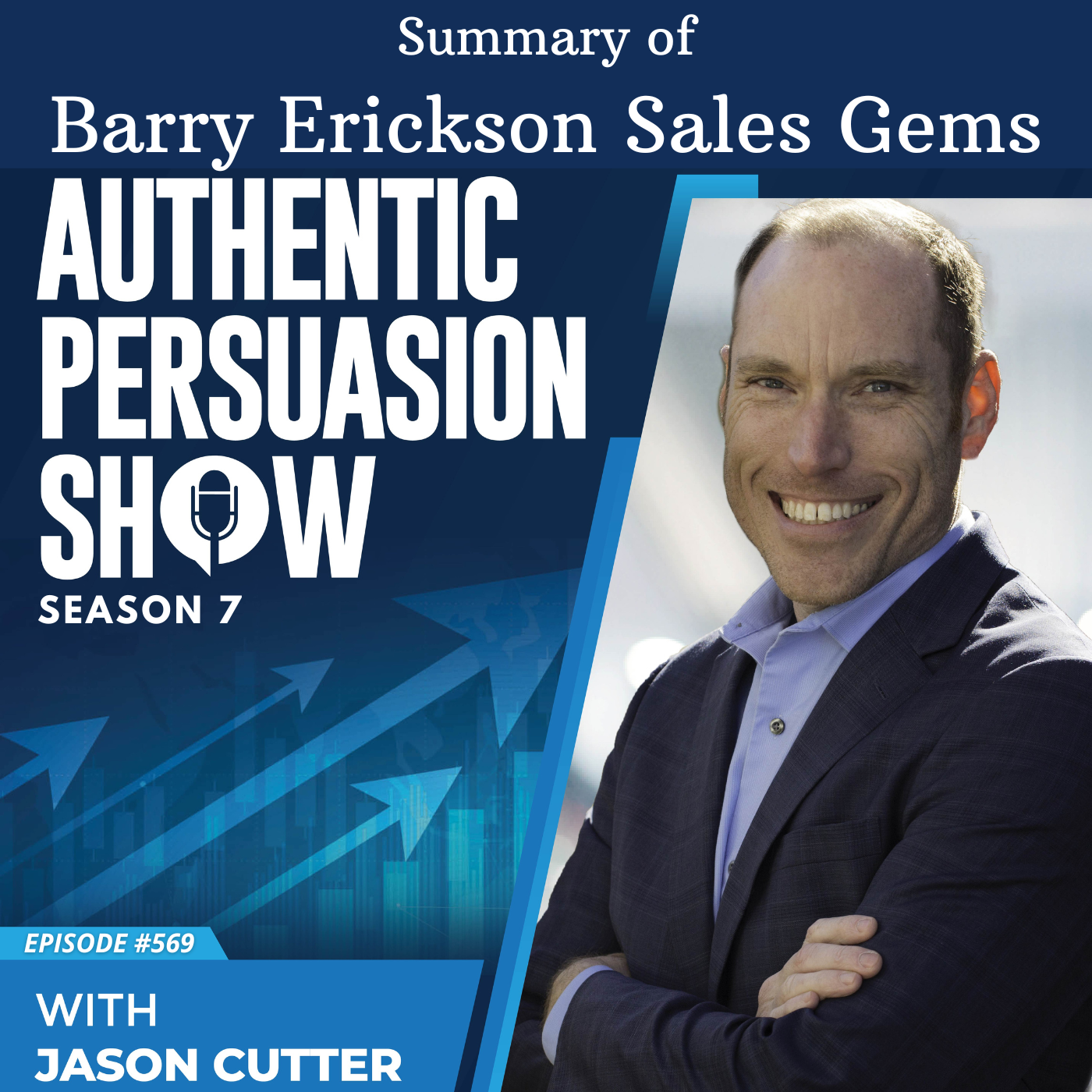Show Notes
A positive mindset is so important yet can be very tough when working in sales.
I did a week of Mindset episodes during Week 2, wanting to address that before any sales-related techniques. But there is only so much I could fit into those episodes.
This week I am going to address mindset again, this time in a little more detail/depth. Of course, there are a ton of books, videos, seminars, and gurus to help with mindset and positivity. But my focus is specifically for salespeople.
In this episode I cover:
- What is mindset?
- Why does it matter?
- Is there a right mindset?
- Where a negative mindset comes from? (and we all have one)
Also, get your pen and paper, your Evernote/Onenote, or your voice recorder ready – I have a homework assignment for you at the end of the episode.
Episode 61 – Transcript
Welcome to another week of the sales experience podcast, a new episode.
This is episode 61 and I’m kicking off what I’m going to call mind set 2.0 week now, week two of the sales experience podcast. Make sure to listen to that. Super Important, very good details. A lot of like high level stuff, whatever I could cram into five, 10 is minute episodes. I did my best.
Then here we are about three months later and there’s more topics that I’ve been thinking about recently. Looking at the struggles of some of the sales people I’ve been interacting with the teams, seeing different comments, questions online. You know, I just finished four weeks of answering questions.
There’s some themes that came up in other comments that I got and it’s really about that mind set and it’s how do you stay positive? How do you win as a salesperson on the floor or at the dealership or in appointments?
Constantly dealing with people. Maybe dealing with rejection a little bit of the time. A lot of the time, depending on what capacity you’re in. You know, if you’re on the phone and you’re doing high volume of calls, like hundreds of calls a day, there’s going to be hundreds of rejections a day.
If you’re in a low call volume or low meeting volume, you may have two or three meetings a day. Yet you got to make the most of those. So there’s a lot of pressure. So how do you stay positive? That’s my goal with this week is kind of mind set 2.0 topics.
Now obviously this is a whole course, this is a whole training program, a whole book worth of topics to cover. And like I said last time in week two, there is a lot of things out there on mind set, a lot of already good material that you can listen to, gurus to listen to, people to listen to, videos to watch, all of that.
However, my focus, and maybe you’ve heard this information before, there’s really nothing new. This might be a good reminder and it’s all going to be focused on the sales person point of view. So not just mind set, not just how do I stay positive and focused and motivated.
In my life in general, but how do I do it in terms of a sales role? So as a sales professional or a budding sales professional, how do I have their buy the best mind set? How do I do my best to focus on winning even if there’s challenges? And so that’s what I’m going to tackle here.
We’re going to do some prep. I’m going to spend a few episodes because I already have this in my mind how I want this to go. A few episodes are going to be building the ground work, the framework for the mind set part and the different things to look at.
Imagine this as a five part mini-series, mini course on mind set. And at the end of each episode, my goal is to give you a small little homework assignment. I know nobody likes homework, but, some things you can do, think about whether you’re into journaling and you want to write the answers down, which is what I highly suggest.
Just kind of go into it with a question and then let your mind wander and see what happens. Maybe you do a walking meditation kind of thought process. Maybe you do best if you talk about it with somebody else and have a dialogue and just see kind of what things come up in the course of a conversation.
But just some things to focus on and think about bit by bit here as we tackle the thought of mind set. So first let’s talk about mind set in itself.
So what is mind set? Basically it’s how you view the world. There’s all kinds of different definitions, but really all that matters in all that it boils down to is how do you view the world? How do you see things through your Lens, which is based on your experiences, it’s combination of nature and nurture, which I’m going to talk about. How do you view things?
Are you a glass half full that there’s always opportunity and you’re optimistic and you see the better side of things, whether it’s a situation, a relationship, somebody events that happen. Do you kind of look for the silver lining or are you more on the glass half empty side, which is, you know, can be summed up with phrases like no good deed goes unpunished, which is if I do anything good, it’s going to result in something bad anyway.
Or that with every silver lining there’s a dark cloud, meaning yes there’s a silver lining, but you can’t have that without a dark cloud and let’s focus on the dark cloud.
So really the mind-set that you have is what your view of the world is. And of course that affects your sales career. So when somebody doesn’t answer or hangs up on you or is upset with you, do you take that personal? Do you think that that’s how all people are?
Do you think that’s how all prospects are or do you see that as maybe they’re going through something and the next call is going to be better? Do you view opportunities within your sales role or do you see the challenges? You know, that’s really a big deal when it comes to the mind-set if you want to be successful, is understanding. And having the right balance between optimism and pessimism.
You know what I’ve seen doesn’t work well long term as a sales professional is salespeople or sales leader who have the common phrase which is buyers are liars and just assuming that every prospect, every buyer is lying about everything they’re saying and anything that tell you is a lie and if they don’t buy it’s because they were allying anyway and if they do buy they’re probably lying and they’re going to call back and tell you more lies or want to cancel.
That kind of perspective I’ll tell you just doesn’t work. That one will be tough for you to find the long term success and really focus on helping people. If you view everybody that you deal with as being negative and somebody who is lying or maybe trying to get one over on you, then you are going to tend to want to try to get things over on them and if that’s the case it’s going to be a tough industry.
To me, tough business be tough for you to have that professional mind set where you’re now trying to create the best sales experience, which is why you’re here. It’s why you’re listening to this. It’s my focus. I want that blend. So not that a negative mind set is bad. Sometimes negative mind set pushes people to do things that you know they might not do. Right?
So if you have this negative kind of driver thing where you know the glass is half empty but you are driven by that because you want to win, you know, you’re used to being the underdog, you’re okay with that.
That may be to your advantage, but you’ve got to be careful with how you view things and how that works and how well that works. So remember, and I talked about this early on in the podcast, uh, you know, in the first couple of weeks, none of this is good or bad or right or wrong, half glass, half full glass, half empty is not right or wrong, good or bad.
One is not better than the other. It just is. It’s how you view the world and it’s your perspective. And when we’re talking about sales and effectiveness, the question is, is does it serve you? Can you be effective in sales with the mind-set that you have if it’s negative? And so that’s really the question.
Now let’s get into a negative mind set. So let’s start there and talk about the negative side. Not to be negative, but let’s talk about the negative side.
I talked about this before. You know, the brain is trying to protect you. The ego is there to protect the organism and make sure that it survives and procreates at the base level. That’s really all that’s involved. When you get down to that.
So a negative mind set and negative view on the world, the glass is half empty is usually based on there’s nature and there’s nurture, right? So there’s the way that you’re born and just your wiring in general. Then there’s the nurture side, which is how you’re raised, what your parents were like, what they taught you, or the examples they set in their view of the world.
If they think the world is negative, it’s going to be tough to pick up a positive view of the world. If you tend to follow the way that your parents are and then nurture is also the experiences you had.
You know, it’s kind of using the example. If you touch the hot stove and you get burned, how many more times do you want to touch the hot stove before learning the lesson and then after you’ve done that, you see a hot stove and you get concerned and you kind of have this negative reflex.
Same thing happens in life with our mind set, with our ego, with our brain kicking in. If you’ve been hurt in the past, this happens a lot in relationships. If you’ve been hurt in the past in a relationship, then you go into other relationships with this kind of perspective, whether it’s protection mode, preservation mode, or just a scepticism about how other people might be because of what’s happened in the path.
Same thing with jobs. If you’ve been burned at a, at a company, then you may go into other ones with that same perspective or if you have a more positive outlook you realize, hey things happen.
I just wanted to, you know, having the more positive mind set but your brain by default is going to kick in. The Ego is going to try to protect you. It’s going to put in the defence mechanisms, it’s going to have you see the world as mostly negative in order to keep you safe and in your comfort zone cause your comfort zone is the safest place for you to be.
What works don’t go outside of that. So that’s the negative side. You’ve got to identify that. Keep that in mind and keep in mind too, like I’m talking about this in the brome of sales and a sales career, but it’s your life in general and you may find a lot of people are, can be negative in one area, like have a negative kind of view on the world, their mind set in one portion of their life and then a positive other.
So maybe relationships are always a struggle, but career is great. Maybe family is easy, but finances are rough. And so you may have a like a fractured kind of mind set relative to different buckets of your life and your experiences.
So we’re talking about sales. Your homework assignment for today, for tonight, for whenever you listen to this is to think about a time when you have a negative mind set. And again, we all have that and I’m and right now for this example, for this homework, what I’m talking about is what triggers you to have that negative mind set.
If we’re talking about sales specifically and your day in sales, your workday in sales or after your day in sales, and you’re looking back, think about things that trigger it. And I’m not going to give you examples because I want you to think about it on your own, but what triggers you to go into a negative mind set spin in the course of your sales career?
And what does that look like? What are those triggers and how does that feel? So whether it’s journaling, talking to other people, go on a walk, talking to yourself, recording it into your phone so you can just verbalize it, talking to your pet, whatever that looks like for you. Work on this homework, think about it, and then we’ll keep expanding.
That’s it for this episode. Make sure to subscribe so you get all of these episodes. You can find it everywhere online that podcasts are available. You can also go to the cutter consulting group.com website slash podcast and find all of the shows. Find the show notes as well as full transcripts for all the episodes when they come out. And until next time.
Always remember that everything in life is sales and people remember the experience you gave them.
![[E61] Sales Mindset Week: Why the mind tricks us into being negative](https://episodes.castos.com/salesexperiencepodcast/images/TSEP-Cover-Sales-Mindset.png)


